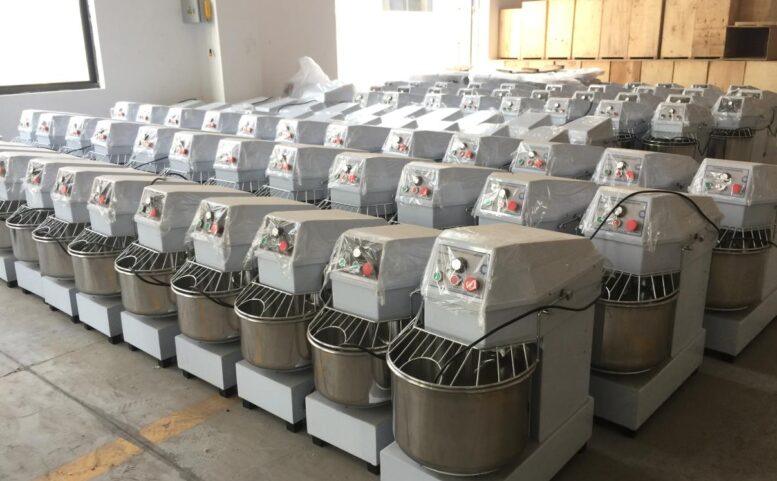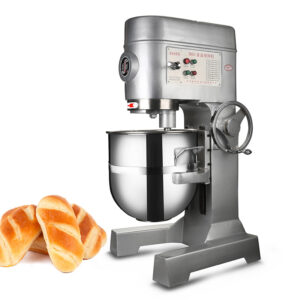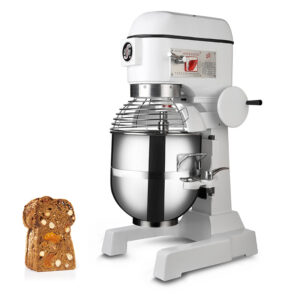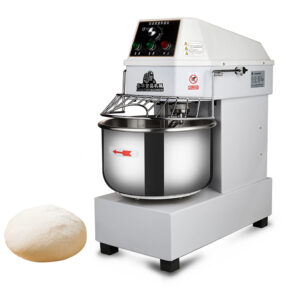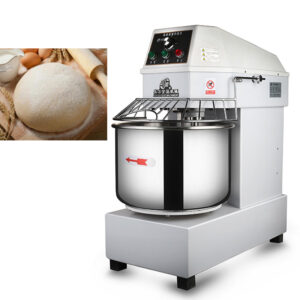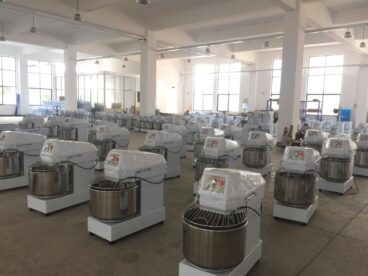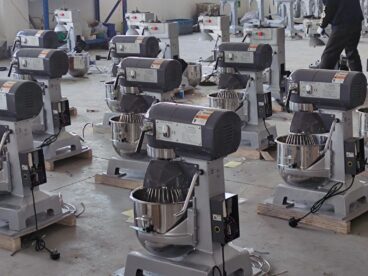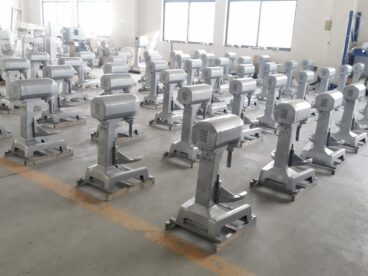- Design and Structure:
Dough Mixer: The design of a dough mixer emphasizes a robust structure and a powerful motor. Typically constructed with heavy-duty materials and robust mechanical components, it is built to handle large amounts of dough. This design ensures stability and durability, making it an ideal choice for addressing the demands of large-scale production.
Planetary Mixer: In contrast, a planetary mixer adopts a more compact design. It is generally lighter and suitable for light mixing tasks. The structure of a planetary mixer focuses on flexibility and portability, making it excel in small kitchens or situations where equipment needs to be moved frequently.
- Mixing Mechanism:
Dough Mixer: Dough mixers use a spiral agitator, a specially designed mixing tool. The spiral agitator stirs the dough by rotating, ensuring thorough mixing. This mixing method is suitable for larger dough batches, ensuring even mixing and fermentation.
Planetary Mixer: A planetary mixer employs planetary motion. The agitator not only rotates around its own axis but also moves along the edge of the mixing bowl. This planetary motion allows the agitator to comprehensively cover the surface of the mixing bowl, ensuring a more uniform mixture.
- Applications and Suitable Fields:
Dough Mixer: Dough mixers are primarily used for producing large quantities of pastries, bread, and other dough products. Their high capacity and robust performance make them the preferred equipment for large baking kitchens.
Planetary Mixer: Planetary mixers are more suitable for light mixing tasks, such as cakes, cookies, and light dough. Due to their relatively smaller capacity, they are better suited for small restaurants or personal use.
- Capacity and Speed:
Dough Mixer: Dough mixers typically have a larger mixing capacity and higher speed options, allowing them to meet high-volume demands and expedite the dough-making process.
Planetary Mixer: The capacity of a planetary mixer is relatively smaller, and its speed range is more suitable for small batch baking. This allows users to have more precise control over the mixing process.
- Cost:
Dough Mixer: Dough mixers are generally more expensive due to their complex design and high-performance features. However, this cost reflects their suitability for high-performance in large-scale baking production.
Planetary Mixer: In comparison, the cost of a planetary mixer is more economical, making it suitable for budget-conscious users or those with limited kitchen space. While its performance is smaller, it is sufficient for general mixing needs.


